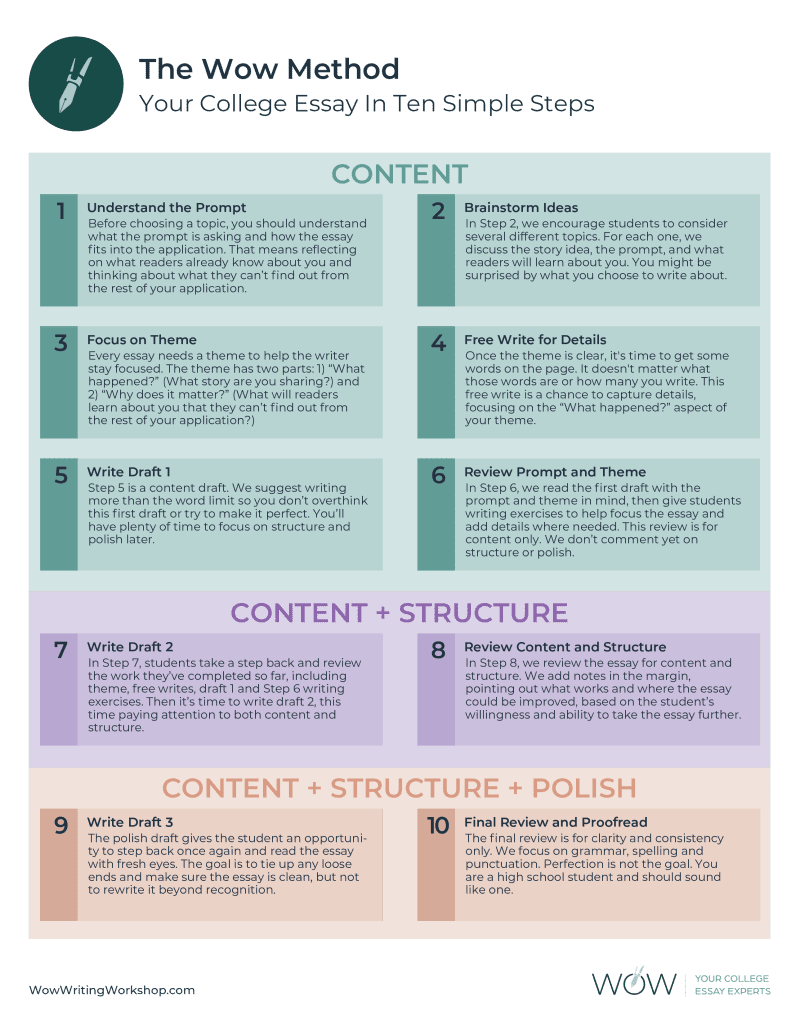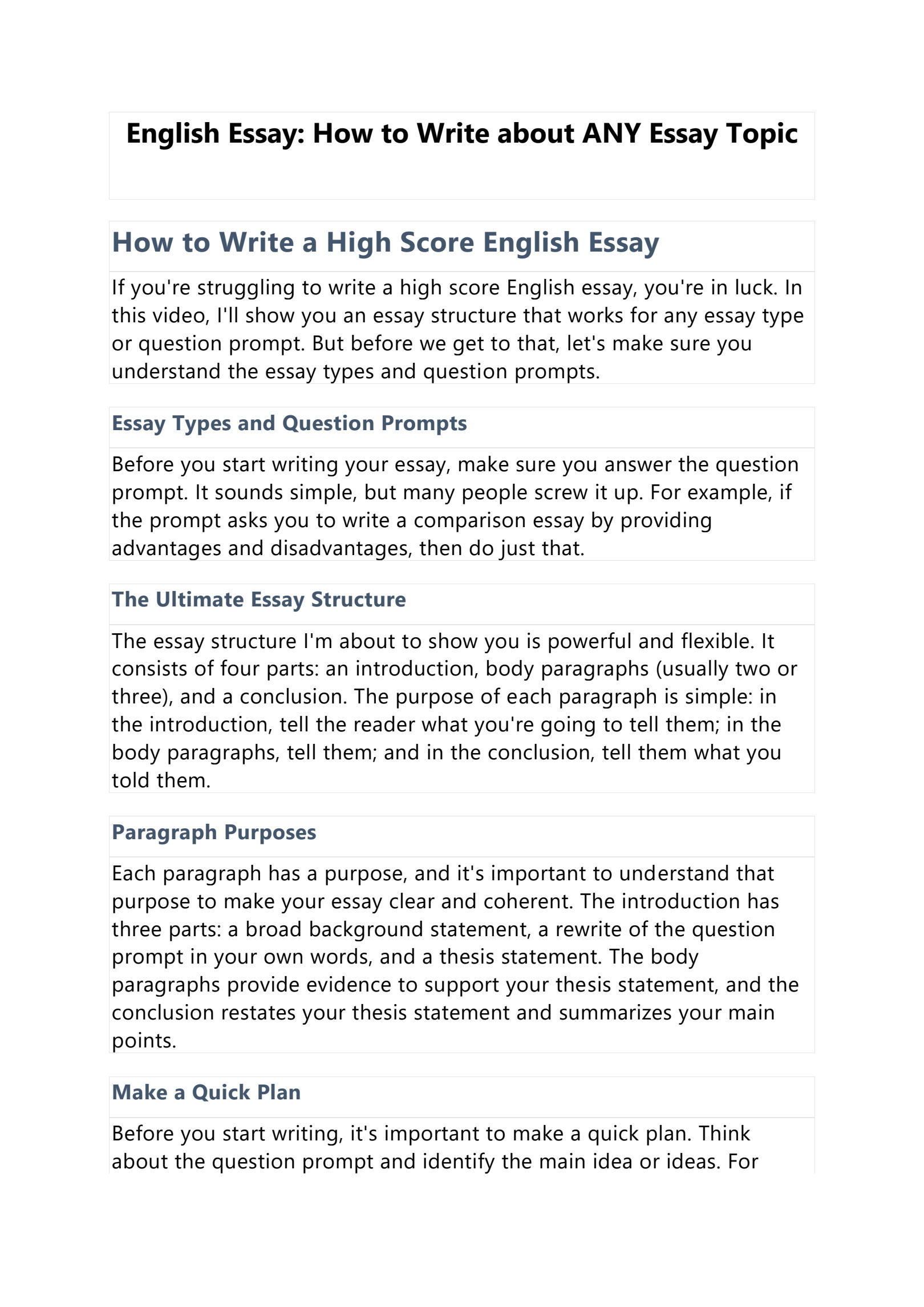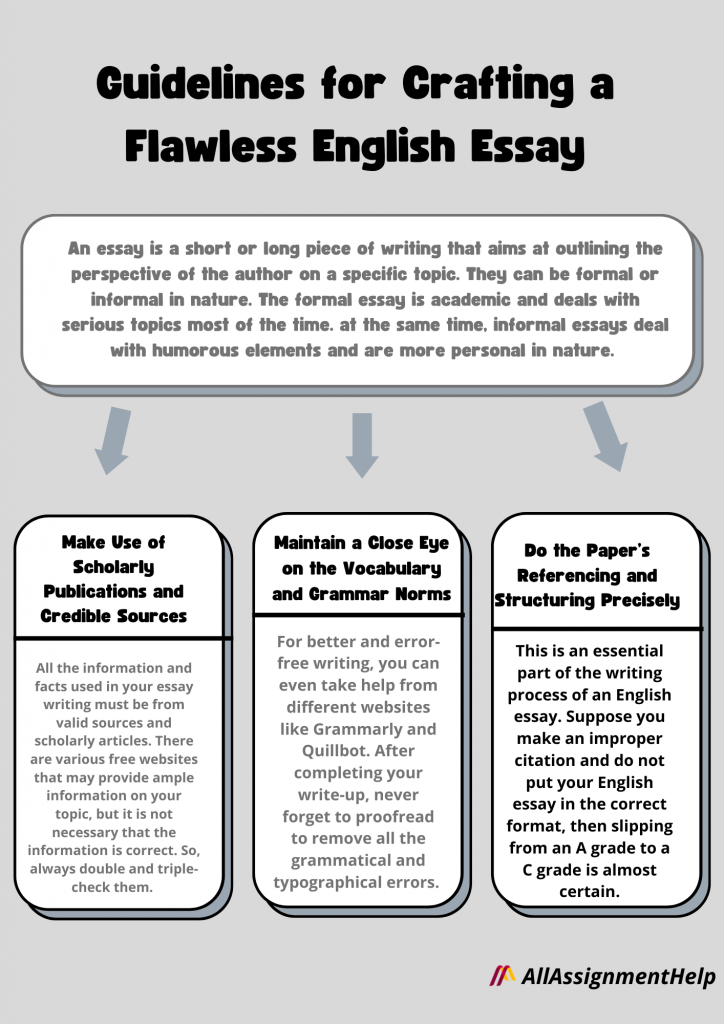Unlocking the Secrets: Writing College Essays Made Simple
Unlocking the Secrets: Writing College Essays Made Simple
Feeling overwhelmed by the thought of writing your college essay?
You’re not alone.
I remember grappling with the idea myself.
But here’s the good news: writing college essays doesn’t have to be a monumental task.
With the right approach, it can actually be an enjoyable experience that highlights your unique voice.
Let’s dive into some practical tips and strategies that I found super helpful during my own essay-writing journey.
Whether you’re writing your first essay or looking to polish your skills, I’ve got you covered.
Understanding the Purpose of College Essays
Before we jump into writing, let’s get clear on why college essays matter.
These essays are more than just a chance to show off your grades.
They’re your opportunity to let your personality shine.
Admissions committees want to see who you are beyond your academic achievements.
This is your moment to stand out.
Choosing the Right Topic
Picking a topic that speaks to you is essential.
Here’s how I approached it:
- Reflect on Your Life Experiences: Think about moments that shaped who you are. What challenges have you faced? What drives you?
- Consider Your Audience: Research the colleges you’re applying to. What do they value? Pick a topic that aligns with their ethos.
- Be Authentic: Write about what truly matters to you, not what you think they want to hear.
Structuring Your Essay
A well-structured essay makes it easier for readers to connect with your story.
Here’s a simple format I like to follow:
- Introduction: Start with something that grabs attention—an anecdote, a quote, or a question. Then, introduce your main theme.
- Body Paragraphs: Use these to explore your experiences or insights. Each paragraph should focus on one point that supports your overall theme.
- Conclusion: Wrap things up by revisiting your main theme. Reflect on what you’ve learned and how it shapes your future.
Writing with Clarity and Style
When writing, clarity is key.
Here are some tips that helped me improve my writing:
- Use Active Voice: It makes your writing more engaging. Instead of saying, “The book was read by me,” say, “I read the book.”
- Be Concise: Ditch the jargon and keep it simple. Aim for clarity with straightforward language.
- Show, Don’t Tell: Use descriptive language. Instead of saying you felt nervous, describe how your stomach churned or how your hands trembled.
Editing and Revising Your Essay
The magic happens when you edit and revise.
Here’s how to tackle this vital phase:
- Take a Break: After finishing your draft, step away for a day or two. Fresh eyes make a big difference.
- Read Aloud: Hearing your essay helps catch awkward phrases and improves flow.
- Seek Feedback: Share your essay with trusted friends or family. Their insights can be invaluable.
- Proofread: Check for grammar, punctuation, and spelling errors. A polished essay shows your attention to detail.

Utilizing Resources
There are tons of resources to help you on your essay-writing journey. Here are a few that I found particularly useful:
- YouTube Tutorials: Video content is often easier to digest. Check out “Writing College Essays Is Easy, Actually” for practical advice.
- Writing Workshops: Join workshops for structured guidance and feedback.
- Sample Essays: Review successful college essays for inspiration. Websites like College Essay Guy showcase examples from top universities.
Common Pitfalls to Avoid
As I wrote my essays, I stumbled upon some common pitfalls. Here’s what to steer clear of:
- Clichés: Avoid overused phrases. Be original.
- Being Too Vague: Specificity is key. Use concrete examples to illustrate your points.
- Ignoring the Prompt: Always refer back to the essay prompt. Make sure you’re directly addressing the question.
- Rushing the Process: Take your time. Crafting a compelling essay is a journey that requires patience.
The Power of Personal Narratives
Personal stories can make your essay stand out.
Sharing a story that highlights your growth resonates with readers.
For example, if I wrote about a challenge, I wouldn’t just state the facts.
I’d share how it changed me, showcasing my resilience and character.
Final Thoughts
Writing college essays can be a fulfilling journey.
By reflecting on personal experiences, structuring your essay effectively, and honing your writing style, you can craft a narrative that captures your unique voice.
Remember:
- Embrace authenticity.
- Seek feedback.
- Take your time.
As I continue to refine my skills, I’m reminded that writing college essays isn’t just about getting into a university.
It’s an opportunity for self-discovery.
So, roll up your sleeves, and let’s unlock the secrets of writing college essays together!
For more insights, check out the video “Writing College Essays Is Easy, Actually” on YouTube for more tips and strategies to enhance your writing experience.
FAQs
1. How long should my college essay be?
Most college essays are around 500-650 words, but always check the specific requirements for each application.
2. Can I use humour in my essay?
Absolutely! If it feels authentic to your voice, humour can be a great way to connect with your readers.
3. Should I write about a serious topic?
Not necessarily. Choose a topic that resonates with you, whether serious or light-hearted. What matters is your connection to it.
4. How many drafts should I write?
It varies, but aim for at least two or three drafts to refine your ideas and improve clarity.
5. Is it okay to ask for help?
Definitely! Seeking feedback from others is a smart move. They can offer fresh perspectives and catch errors you might miss.

